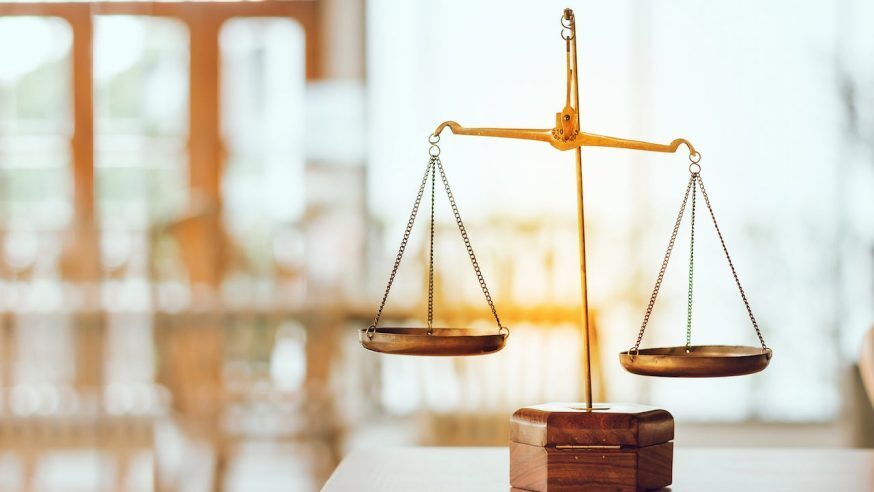The WSOP series No Limit has polarised poker fans. Some love its aspirational qualities, bringing dreams to life at the…
Read MoreBalancing Poker and Work: Tips for Working Poker Players

Poker and Work
The poker-work or poker-life balance is no different; poker players need to be able to prioritize their goals and ambitions, while still being able to earn a living and keep an active social life. Poker requires mental stamina, emotional control, and often long, irregular hours, making it a challenge even for the most disciplined players.
In this post, we’ll be looking at how you can effectively balance poker and work to ensure you meet your poker goals while still maintaining a healthy life balance.
We will cover:
- The Challenge of Balancing Poker and Work
- Setting Clear Goals and Priorities
- Time Management Strategies
- Building Skills Efficiently
- Utilizing Technology
- Building a Support System
- Staying Mindful of Mental Health
The Challenge of Balancing Poker and Work
Anyone who has played poker seriously knows just how much of a grind it can be. It almost becomes a second job in itself, as poker players spend hours grinding away at the tables and spend even more time studying the game in their downtime.
Poker doesn’t just demand strategy and math, it demands mental and emotional bandwidth. Whether you’re playing full-time or part-time, the challenges are real:
- Unpredictable hours: Live cash games run late. Online series stretch into the night. Jet lag from international stops can throw off routines.
- Emotional volatility: Downswings, coolers, and brutal bad beats can drain your motivation and mood.
- No fixed income: The pressure to make up for losses can lead to overplaying and stress.
- Isolation: Long hours behind screens or on the road can be lonely, especially without a support network.
For people with a full-time job, maintaining a healthy balance between poker and work can be tough due to the intense mental demands of the game. It’s easy to become burnt out, either with poker, your job, or both, which leads to mental fatigue and a downturn in overall mood.
While balancing poker and work isn’t easy, we believe that it’s possible to do it in a healthy, productive way that allows you to maximize your time and achieve your goals.
Define What “Work” and “Life” Mean to You
Balance starts with clarity. Ask yourself: Is poker a hobby, a side hustle, or your full-time career?
If poker is your work, then “life” needs intentional protection. That might mean setting strict boundaries around screen time, taking scheduled breaks, or building in family dinners between travel. For hobbyists and part-time players, it might mean resisting the urge to jump into late-night games if it disrupts your career or sleep.
Knowing what you want out of poker—and what you’re willing to give up—creates a foundation for sustainable balance.
Setting Clear Goals and Priorities
This leads us into our first tip—setting clear goals and priorities. If you’re struggling with your poker-work balance, take a step back and consider what things in life mean the most to you. Where does poker lie on that priority list? If it’s near the bottom, you may want to consider playing poker recreationally, leaving more time for the other things that matter more in your life.
We recommend choosing goals that are fully within your control, such as playing a certain number of hands in a certain timeframe rather than trying to win X amount by Y date.
The reason for this is that variance is a huge part of poker, and it can be disheartening if you fail to meet your goal through no fault of your own. By setting a clear, achievable goal, you give yourself something to work towards and a reason to log on and play each day.
Time Management Strategies
Once you’ve set your goal, you need to determine how much time you’re going to dedicate to achieving it. After all, time is a bankroll, so don’t spend it randomly.
Add in all of your non-negotiables that you need to do every week, such as work, chores, family time, etc. Once you’ve laid out your schedule, look for the gaps in it, and determine whether or not you could be playing poker during that time.
Pick out set times for you to play poker each week, ensuring that you have enough time to meet your goals. If you feel like you can’t make enough time to meet your goals, reconsider your targets and try to set something achievable.
After you’ve created your schedule and input your poker times, make sure you stick to it. It’s incredible how much time people lose to procrastinating in a day, but once you set out a schedule, you’ll find yourself gaining all that time back.
Building Skills Efficiently
Of course, being a dedicated poker player isn’t just about the time you put in on the felt, it’s about all the effort that you put in off the felt to improve your game. One of the hardest things to do as a working poker player is finding time to study; you feel that as you have a limited amount of time to dedicate to the game, you should spend all of it playing and honing your skills.
While this is a reasonable thought to have, all the best poker players take time away from the table to study and improve, so if you’re not doing this, you’ll be left behind.
One of the ways you can implement studying into your schedule is by improving the efficiency with which you study. Rather than sticking on a couple of training videos for 90 minutes, half-watching them while on your phone, you can spend a shorter amount of time doing focused study sessions that improve an area that you’re weakest in.
Balance isn’t necessarily about playing less, it’s about playing smarter. By participating in active study, you do not need to dedicate as much time to improve at a faster rate, leaving you more time to play.
Utilizing Technology
One of the ways to help improve your efficiency is by utilizing available technology. There are a number of tools out there that can improve your poker game that are far more advanced than anything that was around 10 years ago, so start using them!
Just look at how GTO solvers have evolved over the years; in the beginning, the only option available was PioSolver which took ages to run and required you to essentially memorize different strategies to use later on. Fast-forward to today, and there are tools that allow you to run simulations much faster, and then play out situations using those simulations against a computer, giving you a feel for how those strategies are implemented in-game.
When time is limited, using technology to improve your efficiency is an absolute must.
Building a Support System
While poker is an individual sport, many poker players credit their growth as a player to the people around them, wheter that’s other players who have helped them improve, or family members who supported them when no one else did. If you’re taking poker seriously, it’s important that you have a healthy support system around you that can help you manage the ups and downs of the game.
There are a number of poker forums filled with like-minded people, so if no one in your life understands poker the way you do, we’d recommend making friends on these sites. Having a group of people who know what you’re going through can help make the swings of the game much easier to manage.
A strong support system is one of the best investments you can make in your poker and your life, as they provide:
- Strategic connections: Talk hands, share notes, or commiserate after rough sessions with peers who understand.
- Social balance: Make space for non-poker conversations and relationships. They help you step back and stay grounded.
- Transparency at home: Communicate your goals and schedule clearly with partners, roommates, or family. When the people around you understand your rhythm, balance becomes easier to maintain.
Plus, talking poker strategy with other people can help you improve as a player. They may see things in a different way to you that you would have never considered, and open up a line of thought that otherwise would never have been pursued.
Staying Mindful of Mental Health
Dedicating a significant portion of your time to poker can be grueling, as it’s an incredibly intense game that requires large amounts of mental resilience. Some poker players cannot handle the swings of the game, and fly into rages when things don’t go their way.
Stress is inevitable, but manageable. Here’s how you can keep it in check:
- Take real breaks. Don’t just close the client and scroll social media. Step away from the screen, stretch, breathe, or take a short walk.
- Practice mindfulness. Meditation apps, breathing techniques, or simple focus resets can help regulate emotions during high-stakes sessions.
- Get active. Regular exercise improves focus, reduces stress hormones, and protects your mood, making it a secret weapon for every serious player.
One of the hardest things to do in poker is stop playing, especially when you’re feeling emotional. These emotions drive you to continue playing for a number of reasons, but when you’re thinking emotionally, you’re not able to think rationally, and the quality of your decision-making will go down, further increasing your losses and worsening your mindset.
Plus, it’s not fair on the people around you. Why should they be punished for your negative choices?
Some people just aren’t cut out for poker, and it’s important to recognize when the game is taking too much of a toll on your mental health. If you feel the game becomes too much to handle, there’s no shame in reducing your hours or taking a break altogether.
Know When to Step Away
Sometimes the best move is not just to fold a hand, but fold a session, a week, or even a month. Whether you’re burned out or uninspired, taking breaks is a strength, not a weakness.
Schedule regular check-ins with yourself. Are you motivated? Are you playing well? Are your relationships and health intact? If not, step back and reassess.
Longevity in poker isn’t about playing more; it’s about knowing and being strict about when not to play.
Conclusion
Being a serious poker player while also working a full-time job is not for the faint of heart. It takes a lot of effort and dedication to put the hours in and work towards your goals, but with the right attitude and plan of action, it can be done. Whether you’re a full-time grinder chasing bracelets or a part-time player squeezing in sessions between shifts, the formula is the same: define your priorities, structure your time, and protect your peace.
